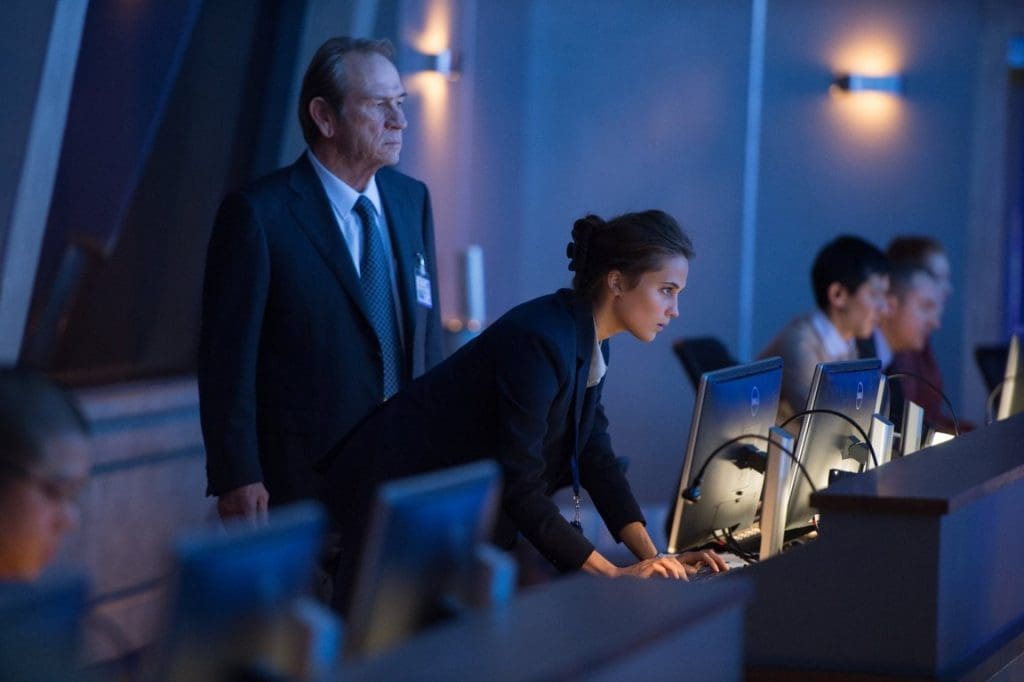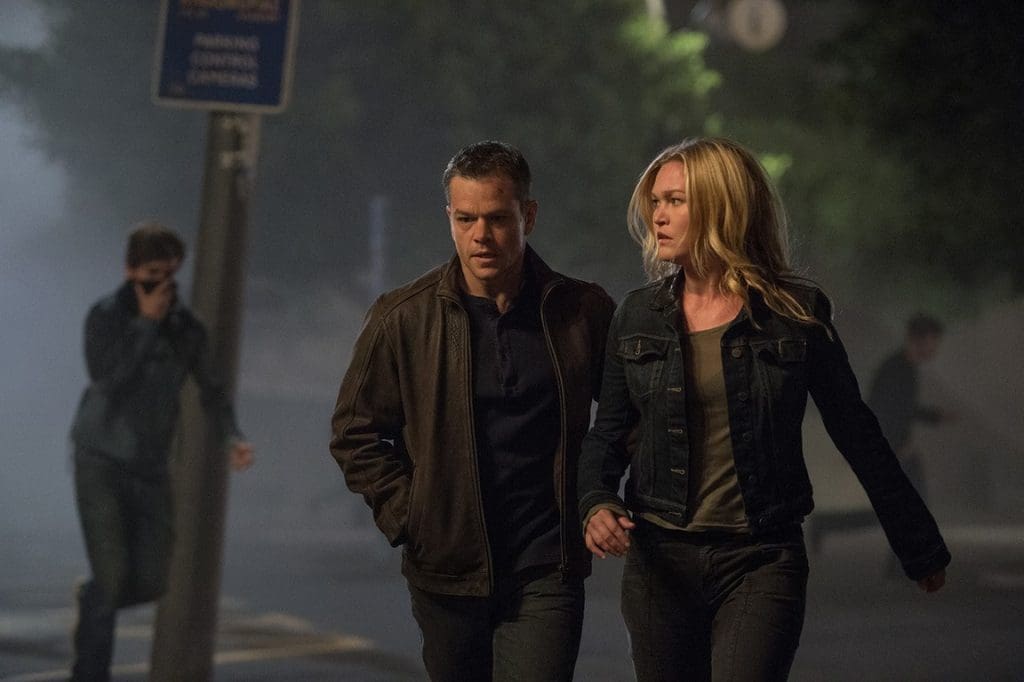The Bourne trilogy really ended on the right foot with me. By the time The Bourne Ultimatum rolled around, it was just time to give the character some closure and move on to the next action thing. However, Universal didn’t think so, and tried (and failed) to reboot the franchise with The Bourne Legacy, only with Jeremy Renner poorly trying to take over for Matt Damon.
With that in mind, Jason Bourne almost feels like an apology for Legacy. Damon has returned as the former government agent turned rogue, with Paul Greengrass once again in the director’s chair as he takes on yet another nefarious plot. So does that mean the movie justifies its existence outside of the original trilogy? Ehhhh, not quite.
It is better than Legacy, but, honestly, that’s not saying much considering that Renner’s character did very little for the franchise. Jason Bourne just feels like it’s dragging through the same old motions, with government conspirators at play and scenes that involve a whole lot of planning, only to result in close calls and agents contemplating just how they missed Bourne. There are a few wrinkles here and there, but, really, the movie as a whole just feels unnecessary.
That doesn’t mean it’s boring. There’s a great chase scene in Las Vegas that almost justifies the movie being made in the first place, and a sequence in Greece (during a riot, no less) has its moments. But there’s too much talking, too much planning, too much…well, repeat from what we got with the first three movies. I almost expected a fresh perspective. Silly me.

Anyway, plot-wise, Jason Bourne is pretty much hodge-podge. Bourne (Damon) is found once again by Nicky Parsons (Julia Stiles, barely there), who explains that a new government program is in play – but there could be more information about Bourne’s father. But no sooner than she catches up with him than the enemy agents turn up, including CIA director Robert Dewey (Tommy Lee Jones, game as he can be), as well as his dangerous unnamed asset (Vincent Cassel).
Perhaps the most interesting piece to this puzzle is Heather Lee (Alicia Vikander), Dewey’s right-hand girl. At first she plays an intriguing part in the mystery, and delves deeper into why Bourne left. But she too gets caught up in too many betrayals here and there, and next thing you know, you don’t really understand what her character’s doing there. Not that it’s Vikander’s fault – it’s a solid performance for a movie that should’ve done more for her.
On top of that, there’s a silly sub-plot involving Aaron Kalloor (Riz Ahmed) and his tech company, and though the movie tries to make it substantial, it just never really feels like it connects.
That leaves just the action to rely on, and it’s good – to a degree. The Vegas and Greece scenes are awesome, but Greengrass’ reliance on the handicam set-up is absolutely exhausting, with quick cuts going on so much that you can barely make out what’s happening at certain points. We get it, the Bourne films utilize a rough-and-ready style, but this seems to be triple that – and it can be real trying on the nerves as a result.

As for performances, they’re up and down. Damon, of course, kicks ass, but he’s given the least amount of dialogue in a Bourne film yet (like five lines), preferring to let his fists do all the talking. Faring better is Jones, who shows great malice as Dewey, even though some scenes are a little far-fetched. (For instance, having him talk to Lee, his asset AND a target on the ground at the same time is completely unbalanced.) The rest of the players don’t have much to contribute, and that’s a shame, especially with Vikander on board. She could’ve easily been a crackling addition to the film as the asset. Not that Cassel is bad – he’s not – but lest we forget that Damon already dealt with him in Vegas before in both Ocean’s Twelve and Ocean’s Thirteen. (Francois Toulour ring a bell?)
Jason Bourne has its moments, but not nearly enough of them to really justify a new film out of the wonderfully wrapped trilogy that came before. Like I said, I think Universal just wanted to make up to those that saw Legacy, but they fail to capitalize on the strengths that made the first three films so much fun, instead running on the basics and not so much the depth. Plus, Greengrass has got to regain control of his cameras, or he’ll throttle the audience the completely wrong way. Jason Bourne’s not necessarily an awful film – just an unnecessary one.





